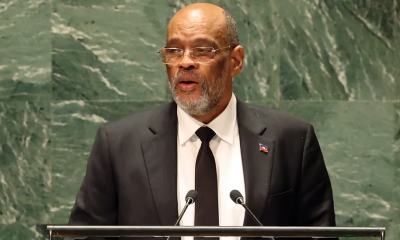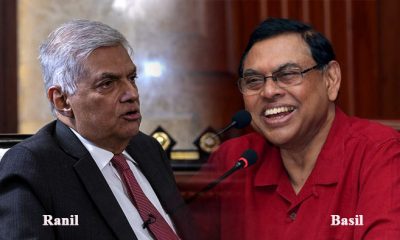Foreign News
State of emergency declared after mass jailbreak in Haiti

Haiti has declared a 72-hour state of emergency and night curfew in and around the capital because of two jailbreaks and spiralling insecurity.
At the weekend, armed gangs stormed a major Port-au-Prince prison, leading to the killing of at least 12 people and release of around 4,000 inmates.
Gang leaders say they want to force the resignation of Prime Minister Ariel Henry, who is outside the country. The groups aiming to oust him control around 80% of Port-au-Prince.
A government statement said two prisons – one in the capital and the other in nearby Croix des Bouquets – were stormed over the weekend. Among those detained in Port-au-Prince were gang members charged in connection with the 2021 killing of President Jovenel Moïse.
The latest upsurge in violence began on Thursday, when the prime minister travelled to Nairobi to discuss sending a Kenyan-led multinational security force to Haiti.
Gang leader Jimmy Chérizier (nicknamed “Barbecue”) declared a co-ordinated attack to remove him. “All of us, the armed groups in the provincial towns and the armed groups in the capital, are united,” said the former police officer, who is thought to be behind several massacres in Port-au-Prince.
Haiti’s police union had asked the military to help reinforce the capital’s main prison, but the compound was stormed late on Saturday. On Sunday the doors of the prison were still open and there were no signs of officers, Reuters news agency reported. Three inmates who tried to flee lay dead in the courtyard, the report said.
One volunteer prison worker told the Reuters news agency that 99 prisoners – including former Colombian soldiers jailed over President Moïse’s murder – had chosen to remain in their cells for fear of being killed in crossfire.
Violence has been rife since President Moïse’s assassination. He has not been replaced and elections have not been held since 2016.
Under a political deal, elections were to be held and the unelected Mr Henry was due to stand down by 7 February, but that did not happen.
In January, the UN said more than 8,400 people were victims of Haiti’s gang violence last year, including killings, injuries and kidnappings – more than double the numbers seen in 2022.
(BBC)
Foreign News
Political turmoil in Kuwait as emir dissolves parliament
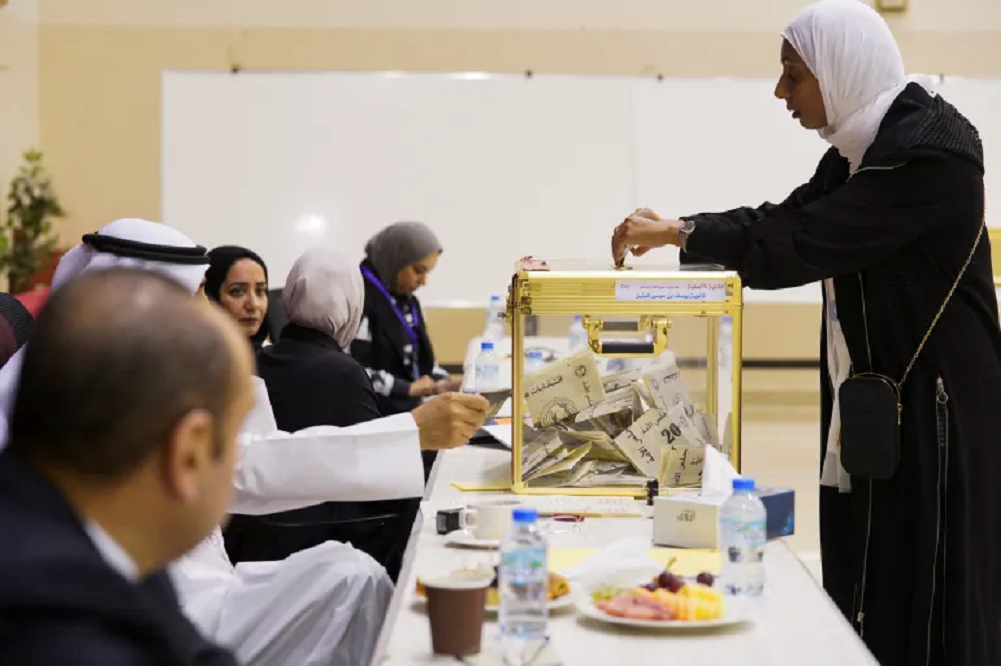
Kuwait’s emir has dissolved the parliament and taken over some of its duties, state media reported, weeks after the Gulf country held elections.
Emir Sheikh Mishal al-Ahmad al-Sabah and the royal-appointed cabinet will assume some powers of the 50-member National Assembly, he said on Friday, in an address broadcast on state television.
He also suspended some unspecified articles of the constitution for “a period of no more than four years”, without elaborating.
“The unhealthy atmosphere experienced by Kuwait in previous years has encouraged the spread of corruption to reach most state facilities, and unfortunately it reached the security and economic institutions,” the 83-year-old ruler said, adding that “it has even affected the justice system”.
“We have faced difficulties and obstacles that cannot be tolerated,” he said.
The elections in April were the first to be held under Sheikh Mishal, who came to power last December after the death of his half-brother and predecessor, Sheikh Nawaf al-Ahmad al-Jaber al-Sabah.
Repeated disputes between the National Assembly and the cabinet have triggered dissolutions of parliament, curtailing investment and reforms aimed at reducing the country’s reliance on oil revenue.
Parliament was to meet for the first time on Monday, but several politicians had refused to participate in the government.
The emir said that the failure to form a government was the result of “the dictates and conditions of some” legislators. “Kuwait has been through some hard times lately … which leaves no room for hesitation or delay in making the difficult decision to save the country and secure its highest interests,” Sheikh Mishal said.
(Aljazeera)
Foreign News
Floods kill 50 people in northern Afghanistan’s Baghlan province
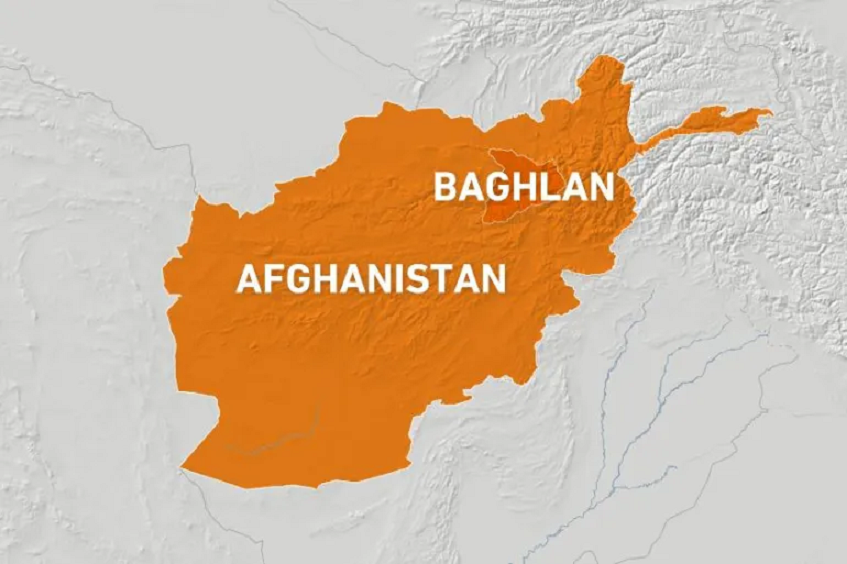
At least 50 people have died in Afghanistan in flooding following heavy rain in the northern province of Baghlan, a spokesman for the Ministry of the Interior said, adding that the death toll may rise.
Ministry spokesman Abdul Mateen Qaniee told the Reuters news agency that there had been flooding in more than five districts in Baghlan after heavy rains, and that some families were stuck and in need of urgent help.
He added that two heavy storms had been predicted for Friday night. “The Ministry of Interior has sent teams and helicopters to the area, but due to a shortage of night vision lights in helicopters, the operation may not be successful,” he said.
The toll was confirmed by local official Hedayatullah Hamdard, the head of the provincial natural disaster management department, who also told AFP that the death toll could rise. Hamdard explained that heavy seasonal rains caused the flooding, and residents were unprepared for the sudden rush of water.
Since mid-April, flash flooding and other floods have left about 100 people dead in 10 of Afghanistan’s provinces, with no region entirely spared, according to authorities.
Farmland has been swamped in a country where 80 percent of the more than 40 million people depend on agriculture to survive.
Afghanistan – which had a relatively dry winter, making it more difficult for the soil to absorb rainfall – is particularly vulnerable to climate change.
The nation, ravaged by four decades of war, is one of the poorest in the world and, according to scientists, one of the worst prepared to face the consequences of global warming.
Afghanistan, which is responsible for only 0.06 percent of the world’s greenhouse gas emissions, ranks sixth on the list of countries most at risk from climate change, experts have said.
(Aljazeera)
Foreign News
Ukraine parliament passes bill for prisoners to join army
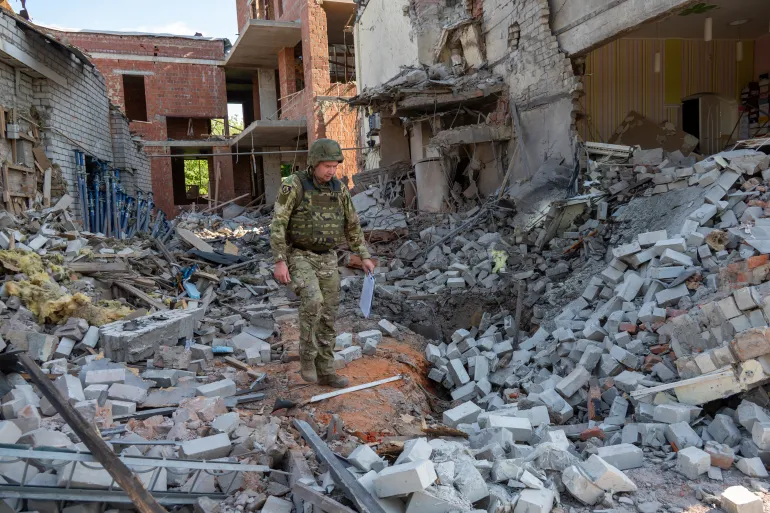
Ukraine’s parliament has passed a bill that would enable some prisoners to fight in the armed forces as the military faces a critical personnel shortage and Russian forces continue to advance on the battlefield.
The move on Wednesday marks a U-turn in Ukraine’s approach on the matter. Kyiv had long opposed the measure and had repeatedly criticised Moscow for mobilising prisoners to fill its ranks.
“The parliament has voted yes,” MP Olena Shuliak, head of Zelenskyy’s party, said in a Facebook post. “The draft law opens the possibility for certain categories of prisoners who expressed a desire to defend their country to join the Defence Forces,” she said.
Mobilisation would be voluntary and open only to certain categories of prisoners.
Among those not eligible to serve include those found guilty of sexual violence, killing two or more people, serious corruption and former high-ranking officials, Shuliak said.
Only prisoners with under three years left to serve on their sentence may apply, she said. Any prisoners who are mobilised would be granted parole rather than a pardon.

The organisation Protection for Prisoners of Ukraine, which had lobbied for a measure allowing prisoners to fight, was disappointed with the adopted text.
“We support the idea behind the law, … but the text that was passed is discriminatory,” the NGO’s head, Oleg Tsvily, said.
“They got rid of leave for [fighting] prisoners, and we don’t know if they’re meant to fight until the war ends – which could mean longer than their sentence,” he explained.
Tsvily said he feared the creation of “special units” for mobilised soldiers would lead to abuse against prisoners.
“It’s like in Russia – redemption by blood. … Anyone willing to fight will be put in one unit and commanded like meat,” he said.
He was referring to reported practices of the Wagner mercenary group of sending waves of convicts into assaults likened to “meat grinders”.
Russia has recruited prisoners to serve on the front lines since the first days of its invasion in February 2022, initially offering presidential pardons for six months of service.
The practice was spearheaded by Yevgeny Prigozhin, who was filmed touring Russian prisons to recruit foot soldiers for his Wagner Group.
More than two years into the war, Kyiv is grappling with how to recruit enough soldiers to repel an intensification of Russian attacks on the front lines.
It has recently toughened measures against draft dodgers and lowered the age at which men can be drafted from 27 to 25.
(Aljazeera)
-

 News7 days ago
News7 days agoSLPP renews call for early general election after UNP’s poor May Day show
-

 Features7 days ago
Features7 days agoCan we quantify research performance and rank scientists?
-

 Sports3 days ago
Sports3 days agoNestle Milo empowers Sri Lanka’s future football stars
-

 Business3 days ago
Business3 days agoDialog Axiata renews pledge to GSMA’s Connected Women Commitment Initiative
-

 Features7 days ago
Features7 days agoDeplorable Debt: Is Sri Lanka caught between IMF and IIF?
-

 Sports3 days ago
Sports3 days agoDialog Powers National Para Athletics Championship 2024
-

 Editorial7 days ago
Editorial7 days agoReveal plans, uphold transparency
-

 Business4 days ago
Business4 days agoUnilever Sri Lanka and Ministry of Agriculture & Plantation Industries sign MOU on sustainable tea production




